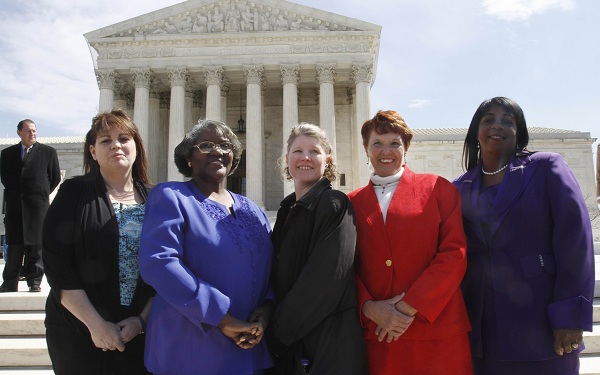
The five plaintiffs in a case of women employees against Wal-Mart, from left, Stephanie Odle, of Norman, Okla., Betty Dukes, of Pittsburg, Calif., Deborah Gunter, of Palm Springs, Calif., Christine Kwapnoski, of Bay Point, Calif., and Edith Arena, of Duarte, Calif. pose for a photograph outside the Supreme Court in Washington. The Supreme Court has ruled for Wal-Mart in its fight to block a massive sex discrimination lawsuit on behalf of women who work there. (AP Photo/Jacquelyn Martin, File)
WALMART V. DUKES (2011)
The Court held unanimously that an employment discrimination suit against Walmart could not be brought as a class action on behalf of 1.6 million women across the country. The five conservative justices held that the class action could not be maintained in any case, while the four moderates would have left open the possibility that the suit could proceed under another provision. The action alleged egregious instances of pay and promotion discrimination, unequal working conditions and sexual harassment. For taking on a goliath like Walmart, the class action is a powerful tool that combines the claims of large numbers of people and gives them leverage and resources to obtain meaningful relief. The conservative majority raised significant impediments to plaintiffs seeking justice in the workplace.

